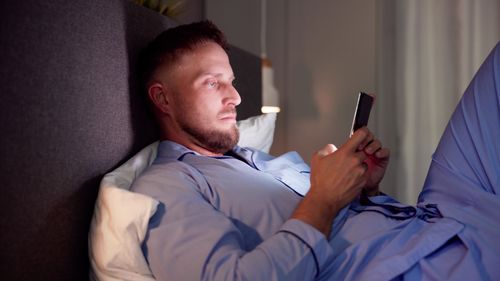In our fast-paced digital world, smartphones are an integral part of daily life for many individuals. While these devices offer invaluable connectivity and convenience, they can also contribute to heightened anxiety levels. Understanding the science behind anxiety and smartphone usage is crucial for anyone looking to foster healthier habits and seek appropriate support through anxiety counseling.
The Science Behind Anxitey and Smart Phones


The Impact of Social Media on Anxiety
Social media platforms are widely used, providing constant access to information and communication. However, studies indicate that excessive engagement can lead to feelings of inadequacy and low self-worth, which can exacerbate anxiety. The tendency to compare oneself to others online often results in feelings of isolation. Connecting with a therapist can help individuals navigate these feelings and develop effective coping strategies to manage their anxiety.

The Role of Notifications and Instant Gratification
Smartphones bombard users with notifications that trigger immediate responses, reinforcing a cycle of anxiety. This notion of being constantly “on” can create a sense of urgency and pressure, heightening stress levels, particularly in college settings. When students feel compelled to check their devices frequently, it disrupts their focus and sleep patterns, further exacerbating anxiety. Therapy can provide students with the tools to manage their smartphone use effectively, creating a healthier relationship with technology.

Information Overload and Cognitive Load
With smartphones, college students have access to vast amounts of information at their fingertips. While this accessibility can be beneficial, it often leads to cognitive overload, making it difficult to concentrate on academic responsibilities. This overwhelm can provoke anxiety in students, affecting their academic performance. Anxiety therapy can help students develop strategies to mitigate information overload, focusing on prioritizing tasks and managing their time efficiently.

Sleep Disruption and Anxiety Connection
Mobile devices are notorious for disrupting sleep, which is imperative for maintaining mental health. The blue light emitted by smartphones can interfere with the body’s natural circadian rhythms, leading to poor sleep quality. Lack of sleep is strongly correlated with heightened anxiety levels, especially in college students. Seeking counseling for anxiety can assist students in establishing healthier nighttime routines, reducing smartphone usage before bed to improve overall mental wellness.
Understanding the science behind anxiety and smartphone usage is essential for college students in Lawrence grappling with anxiety. By recognizing the effects of technology and seeking anxiety counseling, students can reclaim their mental health. Don’t let anxiety compromise your college experience—contact The Anxiety Center at Renew Counseling today for effective support and tailored therapy.
